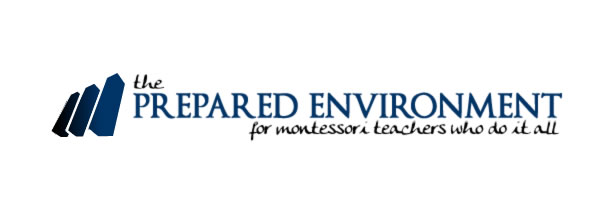Update 4/15/13
WE'VE MOVED! I now blog over at Trillium Montessori
~ ~ ~ ~ ~
My mission here at The Prepared Environment is to make the lives of teachers easier.
In my ten years of teaching I have always looked for ways to streamline and simplify all the things on my to-do and to-get lists. The one behind-the-scenes list I don't take a short cut on is the to-thank list.
Being Grateful
This very special list is where I write down reminders to myself of the different ways people help me in the classroom. Parents take time out to do a presentation for our students, they send gifts for the class, other teachers take the time to help me when I'm in a crunch, my administrators drop in to offer encouragement and support. The more I get in the habit of writing things like this down, the more I notice them. By the end of the year I have a stack of pages filled with the names of people who have contributed to my work and made my life easier and happier.
Why Is This So Important?
Moments of Darkness
The simple act of recognizing when help and love have been offered and given can make all the difference in your day. In those moments when you feel particularly alone in your classrooms, when little Johnny is stretching that last thread of patience holding you together, when those needy parents are driving you up the wall, when you've spent yet another evening at school away from your family... that is when you turn to your list and remember that you are, in fact, not in this alone.
Bring on the LightA habit of gratitude will not only carry you through the dark times, but will ultimately bring more light into your life. All the spiritual traditions in the world talk about the value of gratitude and now science is beginning to corroborate what ancient wisdom has always known.
Dr. Michael McCollough, of Southern Methodist University in Dallas, Texas, and Dr. Robert Emmons, of the University of California at Davis, conducted a study examining the effects of gratitude entitled the Research Project on Gratitude and Thanksgiving.
"The results of the study indicated that daily gratitude exercises resulted in higher reported levels of alertness, enthusiasm, determination, optimism and energy. Additionally, the gratitude group experienced less depression and stress, was more likely to help others, exercised more regularly and made more progress toward personal goals. According to the findings, people who feel grateful are also more likely to feel loved. McCollough and Emmons also noted that gratitude encouraged a positive cycle of reciprocal kindness among people since one act of gratitude encourages another."You can read more about this work at WebMD and the ACF News Source
My list is entitled simply "Thank You Notes". You can be a bit more creative and call it Love Letters, Gratitude Journal, These People Rock, or even Bessie- whatever floats your boat. Regardless of what you call it, this is one thing I highly recommend you do regularly- as regularly as you do your record keeping. You can download a free copy of my form as a pdf file. It is also available as a fully customizable Word document on the Get Organized CD or Download. Or, of course, you can design your own.
Icing on the Cake
If you use your list to actually send a thank you note to the people who have helped, you will find yourself awash in even more gratitude. Genuine thank you notes are a fantastic way to build rapport and community with your colleagues and the parents in your classroom. It feels good to know that you have helped someone and that your efforts have been noticed and appreciated. So, notice that effort in the people around you and let them know!
Feel gratitude, and express it.
Thank you for reading!

